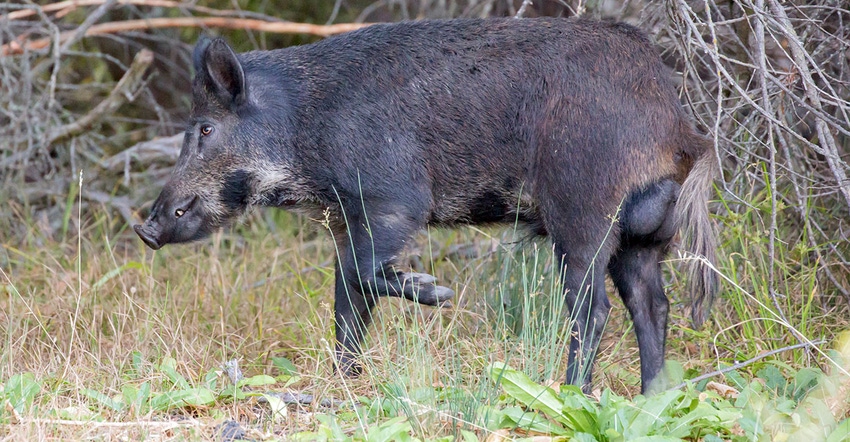
Arkansas and Louisiana are two of ten states Secretary of Agriculture Sonny Purdue identified as having the highest feral swine populations and are eligible for the first round of a feral swine eradication/control pilot projects.
"The Feral Swine Eradication and Control Program (FSCP) is part of the 2018 farm bill, funded with $75 million, and implemented jointly by NRCS and APHIS," says J.P. Fairhead, coordinator, Feral Hog Eradication Program, Arkansas Department of Agriculture. "Pilot projects have three components and can last up to three years with $1.5 million in funding per-project through NRCS."
APHIS will conduct hog removal efforts, NRCS will support land restoration, and non-federal partners will provide producers with feral hog control.
"In our state, the pilot program is divided into four areas in 22 counties across North Central, Southeast, Southwest Arkansas, and the West Arkansas River Valley," Fairhead says. "Project areas are comprised of tier one and two counties. Initial efforts will begin in tier one counties and move into tier two counties after initial removal efforts and damage assessment evaluations."
Ten conservation district technicians will be hired to assist USDA/APHIS Wildlife Service personnel with feral swine removal efforts on private lands in tier one counties.
"Landowners needing feral hog removal assistance may contact the USDA/APHIS Wildlife Services state office at (501) 835-2318, or their local conservation district offices in the following counties: Arkansas, Ashley, Drew, Hempstead, Howard, Sevier, Baxter, Izard, Marion, Logan, Sebastian, and Yell," Fairhead says.
Pilot projects include educational and outreach components landowner workshops, field days, surveys, demonstrations and damage assessment.
Other states receiving funding for first round eradication/control pilot projects include Alabama, Florida, Georgia, Oklahoma, North Carolina, South Carolina, and Texas.
About the Author(s)
You May Also Like




